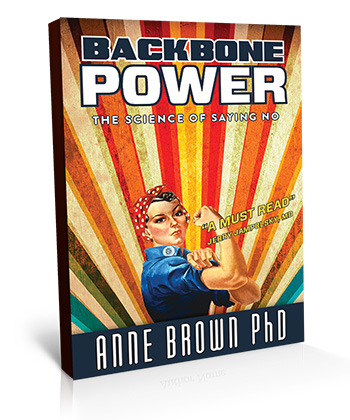
Wouldn’t it be great if we could wave our magic wand and no one would relapse? Until we understand more about addictions (and we have work to do there), we will have to tackle relapse in other ways. Let’s look at a couple of possible breakdowns that might lead to relapse and find some ways to avoid the traps.
First of all, everyone is different. We can give a general plan and it is up to you (with your team) to make it specific to your vulnerabilities.
In working with my clients, here are a couple of key areas I’ve found that need to be addressed:
Structure
Many people use to excess to break out of their perception of “structure.” The Friday night binge has often been described to me as the unloading and/or dumping of the structure of the week. And yet, without structure, too much free time leads to excessive indulging.
Let’s make friends with structure. Maybe you grew up with a lot of “shoulds” and “chores, chores, chores.” This was a form of structure imposed on you. Now as an adult, you have the ability to set up a gentler structure that supports you accomplishing what you want, being who you say you want to be and grounding you. How many of us have turned to our work in order to stay grounded when life threw us more than we thought we could handle?
Structure can be reinvented to include the practices you want to support who you want to be in the world. For example:
- Set up healthy foods on Sunday for the week.
- Set up an exercise schedule with a trainer or friend 3-5 times a week.
- Find your dharma and happily spend 20-40 hours a week giving the gift you were given back to make a difference in others’ life.
- Plan your family time to support your family and your recovery.
- Plan your friend time to support both of you.
- Plan your network of support time.
- Plan your meditating time.
Now, remind yourself this is not a structure imposed on you, but rather a self-designed structure that supports you being who you say you want to be. If you find yourself saying “I hate authority or being told what to do,” it is time for you to look back and see what was then and look at the present to see what is now.
A structure set up by you can be your best friend in recovery. I have clients who feel their meditation time or golf time or swim time was what helped them have a successful recovery. What will make yours special and successful?

Boredom
I see so many people get trapped in the “I am boring if I am not in my addiction.” The sabotaging voice comes in to convince you to start using again. This voice can be very powerful…if you let it run the show.
Let’s look at boring. What does that word mean to you? What does it mean to others?Dive into this discussion with a trusted friend/advisor. There is nothing boring, for those wanting to love you, about being with you while you are in a blackout, making plans with you and you are a continual no-show, not being able to have a conversation with you at the beginning of the evening, making agreements with you that are not kept and on and on. If you have been chasing the continual, excessive feeling of well-being for years, you may not know normal or close to normal. I believe tackling this concept of you feeling boring with your team can only benefit your recovery.
 If you only danced under the influence, the first time you dance sober, you are going to feel awkward/boring at best. If dancing is important to you, take lessons and get the excitement from dancing – not from being under the influence. A really good exciting dancer is someone who has learned the steps, has good rhythm, has confidence, and/or has experience dancing – NOT someone who just chugged a mind-altering substance and is gyrating on the floor.
If you only danced under the influence, the first time you dance sober, you are going to feel awkward/boring at best. If dancing is important to you, take lessons and get the excitement from dancing – not from being under the influence. A really good exciting dancer is someone who has learned the steps, has good rhythm, has confidence, and/or has experience dancing – NOT someone who just chugged a mind-altering substance and is gyrating on the floor.
Everything you “learned” in your addiction has to be relearned to include normal parameters. If you were treating social anxiety with substances, being in social situations may be difficult for you. Going back to substances, because you feel you are “boring” is not the answer. That voice may try to convince you it is, but trust me, it is not and it comes with such huge consequences.
First, immerse yourself in educating yourself. Being in your addiction can take you off the path of life. You missed a lot of what was going on in the world. Be quiet and get caught up. If you have been off the path of life for many years, surround yourself with people who understand catching up is an important part of your recovery. Ask questions, read, watch movies, start to pay attention to the news and slowly start to build your conversations in order to enter the social world. If you are an exercise person, do it with a friend. Go to the movies with a friend and discuss the movie.
Buffers are great ways to socialize. If you really have to attend big events and the anxiety is unmanageable, there is medicine you can take. I recommend trying everything before medicine, but the point is self-medicating is NOT the answer. Declare yourself a beginner in the domain of “Boring” and commit to re-educating yourself.
If you believe you were a functioning person during your addiction, trust me, there is at least one area that suffered. You may feel you were up to date with the world and the area that is suffering is intimacy. When you attempt intimacy, you may feel that you are boring. Going back to your substances is not the answer. You will have to relearn (or learn for the first time) what real intimacy and normal parameters are. Have trusted advisors and coaches who can help guide you through these difficult waters.
In summary, a successful recovery embraces a user-friendly structure set up by you and declines any talk of “boring” as idle, sabotaging chatter designed to leave you unsuccessful.

This article was originally published on Recovery.org



 Facebook
Facebook LinkedIn
LinkedIn Twitter
Twitter Youtube
Youtube StumbleUpon
StumbleUpon
Leave a Reply